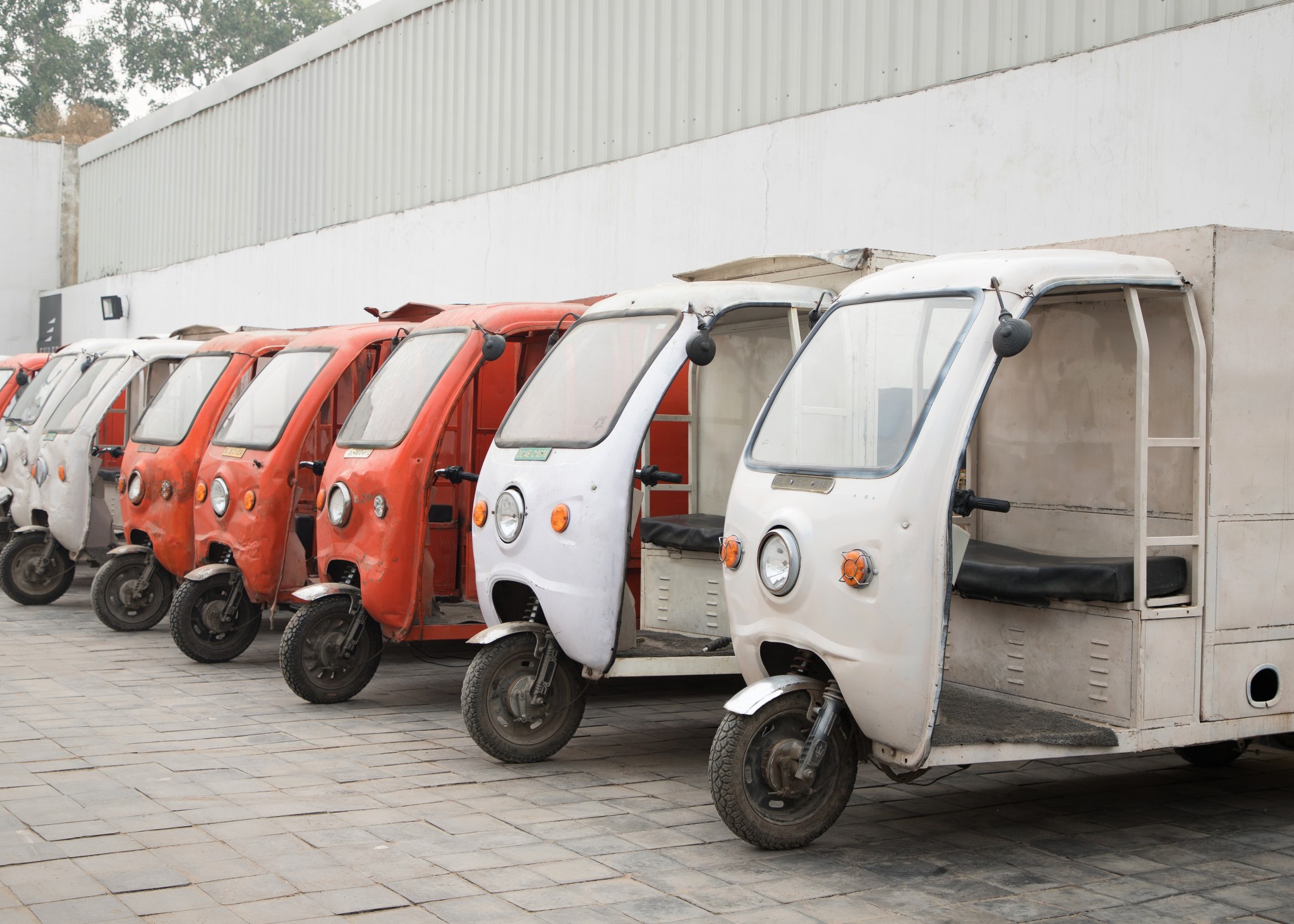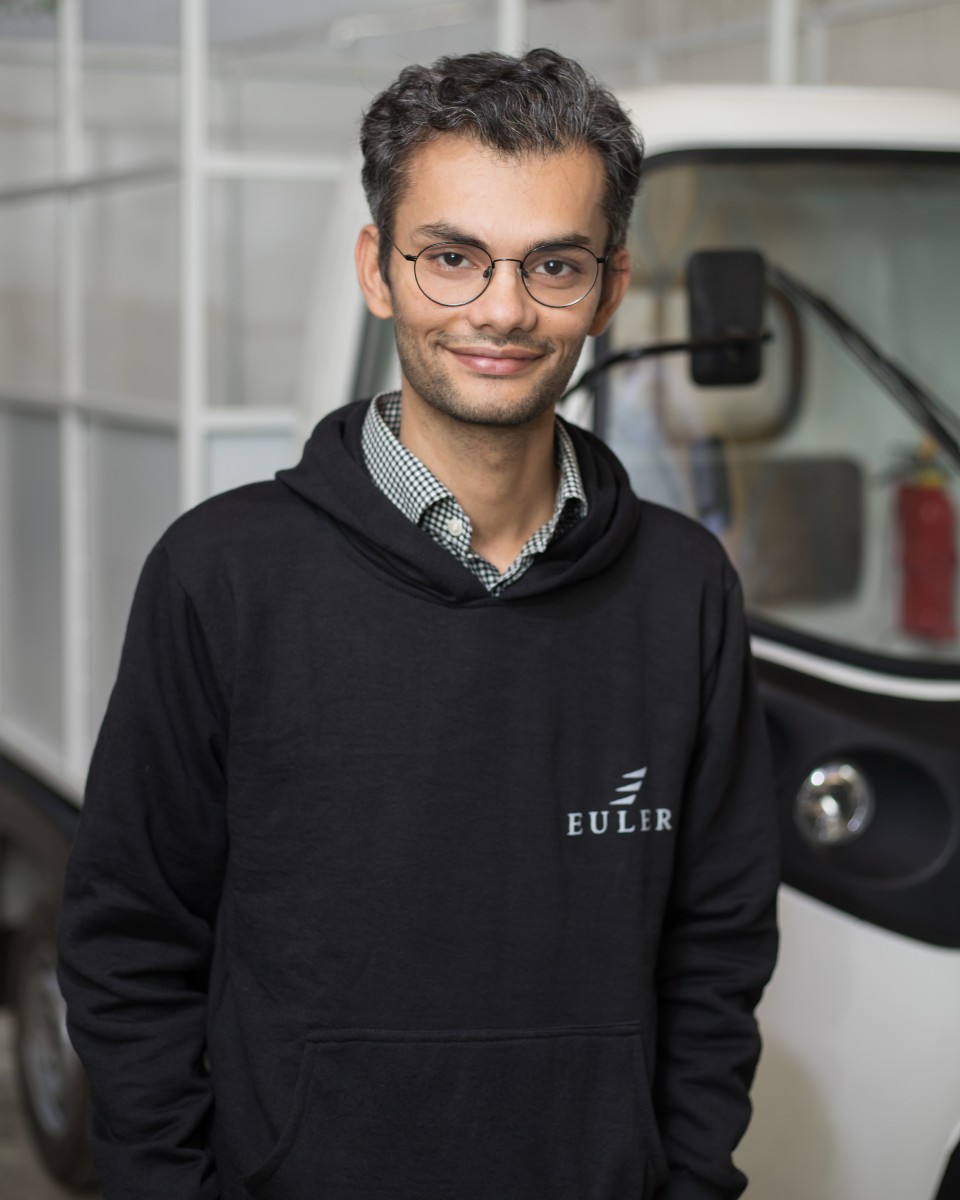In conversation with Saurav Kumar, Founder & CEO, Euler Motors about the growth in the commercial EV space
Euler Motors’ Founder and CEO talks about the commercial EV market, its products and plans for growth in the near future
 Three-wheelers by Euler Motors
Three-wheelers by Euler Motors Saurav Kumar, Founder & CEO, Euler Motors
Saurav Kumar, Founder & CEO, Euler MotorsEvo India: Tell us about Euler Motors story, where did you start and what was it that you set out to do?
Saurav Kumar: Euler Motors started three years back and at that time, I had sold my first company to PayTM. I was thinking about the next opportunity, and electric vehicles was an area of interest. After seeing what globally other countries like China, Europe and US had been doing and looking at the EV ecosystem in India back then, I realized it was the light electric commercial vehicle segment that needs a focus on - three wheeler and four wheeler cargo haulers in particular. Today, we are completely into cargo transport and currently our prototype vehicles are supporting a lot of e-commerce companies for their last mile deliveries.
Evo India: Why light electric commercial vehicles, why not passenger vehicles or two-wheelers?
SK: While making a shift to electric, ports and systems like charging stations etc. are all needed and when these equipment are put together, it becomes easier to optimize delivery related problems in small clustered areas.
For example, a Delhi based electric car owner would plan to travel to Shimla or Agra, charging stations will be needed to set up across not just in Delhi but along these routes as well. So, that was one of our major reasons we felt like taking a regional approach since its easier and better to electrify a small city and then expand to other cities or states. The second one was, in terms of the advantage that EV has over an ICE vehicle is in your cost of operation. For example, an EV costs 60-70 paisa per kilometer while a diesel engine cargo can go upto 3 rupees per kilometer. The longer the vehicle runs, the more are the advantages. That's why we went after the light electric segment, among other factors like India being a dominant market in three wheelers and we are the largest three wheeler exporter. So, we felt that the supply chain that is required to develop the vehicle is present here largely and we can cash in on what has been already developed rather than depending on import from day one. However, we do work with a lot of global suppliers, but we felt confident that if we were to rework a product, the segment would be strongest.
Evo India: What are some of the products you make?
SK: Our priority was to ensure that customers become comfortable with transitioning to EVs and since we focus on cargo transport, we are working towards building our very first three wheeler cargo. Also, as an automotive OEM focused on light commercial electric vehicles for intra-city transportation, we partnered with some e-commerce companies to experiment our prototype vehicles and get some pilot data. In the process we realized that a vehicle is just one part of the equation while the other part is charging station. A network of charging stations is needed in order to provide more rapid charging capabilities and facilitate intercity travel. We took a horizontal approach and along with our vehicles, we built a network of near about 100 charging stations in Delhi-NCR to ensure a holistic ecosystem for smooth operations of EVs. We also offer servicing along with these. We have built a full ecosystem with vehicles, charging stations, software, cables etc., rather than taking a ‘just vehicle maker approach’ and depending on the government for everything else.
Evo India: Could you give me some technical details, the range, the time it takes to charge up the battery? I am sure downtime is a big issue in this industry.
SK: With these vehicles, you typically get a window of about 4 to 5 hours to charge overnight. We also noticed that vehicles typically don't run more than 80km in a day. However, we have worked with some customers who wanted 120km. These were the numbers we had seen in the market so we looked at a range between 80-100km per charge, in terms of payload, we considered it to carry anywhere between 700-800kg.
Evo India: Which cities are you going to be launching in first? Won’t bigger cities like Mumbai require more than 80km a day?
SK: Each city has their own operation cycle. Currently, we have pilots running in Delhi NCR but we do plan to expand to cities like Bangalore, Chennai and Hyderabad in the near future. We are looking at subsidies, more e-commerce penetrations etc. There are other factors we take into consideration before evaluating a city we want to expand to.
Evo India: Your charging network, is it something that you set up in the facility or the hub of the person that is purchasing or is this a public charging network that you're setting up?
SK: Euler has its own space that we've taken and is open to only our vehicles, at present. We have charging stations in Delhi, Gurgaon and Noida, we're expanding in these locations. Any city that we launch in, we'll set up our own charging station and then we'll build up on it.
Evo India: How many charging points do you have at the moment or when you launch and is it only open to your products or can anybody use them?
SK: Roughly, we have 100 for now. Currently, it is only open to Euler products but when we expand and stabilize, we will open it for everyone. We have reached the stage where we need an EV ecosystem to accelerate it, we need to work together.
Evo India: What's next for you guys?
SK: We are all geared up to launch our product and then we will focus on expansions. At present, we have pilots running in Delhi NCR but as mentioned, we want to expand to at least four cities this year and instill the confidence in fleet owners that EV is actually the way to go forward.


